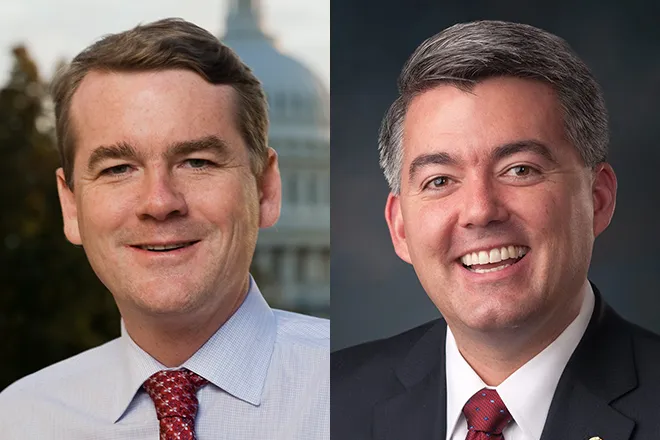
Daily Audio Newscast Afternoon Update - January 23, 2025
© INDU BACHKHETI - iStock-1336427297
News from around the nation.
Trump shuts off access to asylum, plans to send 10,000 troops to the border; Federal employees are told to name colleagues who work in DEI roles or risk adverse consequences; Jackson's office of violence prevention aims to revive communities, reduce crime; Hate crimes double in CA from 2019-2023; reporting low in rural areas; MN nurses: Patient care shouldn't come with a heavy dose of AI.
Transcript
The Public News Service Thursday afternoon update.
I'm Mike Clifford.
President Donald Trump is preparing to send around 10,000 troops to the southern border where they will support Border Patrol agents under new orders to shut off access to asylum.
That's according to a U.S. Customs and Border Protection briefing document obtained by The Washington Post.
They report the order directs border agents to block entry to migrants on the grounds that they have passed through countries where communicable diseases are present without citing any specific health threat.
Next from NBC News, federal employees received emails Wednesday warning that they could face repercussions if they do not report on coworkers who work on diversity, equity, inclusion and accessibility positions that might have gone unnoticed by government supervisors.
And in Mississippi's capital, once dubbed America's deadliest city, a new initiative in Jackson seeks to turn the tide on violence through collaboration and a public health approach.
The Office of Violence Prevention and Trauma Recovery was introduced in 2022 as a response to surging crime rates, with Jackson recording 156 homicides in 2021.
According to the office's executive director, Keisha Coleman, who's infusing her 25 years of experience in violence prevention and intervention, the office takes a broader approach rather than focusing solely on traditional policing.
The main goal was to change the narrative of public safety, to let people know that it's not just about policing and prosecution, but it's also about community engagement, community strengthening and rebuilding the community through a lens of public health.
I'm Trimelka Holmes.
Next to California, where data show that hate crime reports almost doubled between 2019 and 2023.
So the Civil Rights Division is promoting its new CA vs. Hate hotline.
Since its launch in May 2023, the hotline has received more than 1000 reports of hate incidents, but almost none from rural counties such as Del Norte, Sutter and Mariposa.
Kevin Kish directs the California Civil Rights Department and says the state is partnering with community groups to increase trust.
We know that when people are afraid, when they feel isolated, it is unlikely for them to turn to government, at least not without a trusted intermediary.
Kish says people who fail to report hate incidents may worry they won't be taken seriously.
They may have a language barrier or fear contacting the authorities.
I'm Suzanne Potter.
And nurses are calling attention to an issue felt by many parts of society, the growing influence of artificial intelligence.
Minnesota Nurses Association President Chris Rubich says he and his colleagues aren't opposed to AI innovation, but administrators should know they simply can't replace decision-making by humans in critical moments.
And it's quite common for the computer program that's already built in to accidentally misinterpret a heart rhythm, right?
It happens.
Machines aren't perfect.
Nationwide, thousands of nurses held rallies last week demanding AI safeguards.
This is Public News Service.
We head next to North Dakota where lawmakers there aren't done trying to reshape approval requirements for future battle questions that cover constitutional amendments.
Last fall, voters across the state projected the idea of increasing the signature requirement for getting initiated measures on the ballot.
Despite the failure, there's now a plan to bump the approval threshold for a ballot question to 60 percent.
Amy Jacobson of the group Prairie Action says a supermajority approach hurts grassroots level efforts.
We really actually see it as kind of being designed to silence the voters by raising the voter threshold.
The legislative sponsor and other supporters argue that compared with other states, North Dakota makes it too easy for constitutional amendments to cross the finish line.
They also cite the influence of out-of-state interest groups.
If the legislature greenlights the proposal, North Dakota voters would then decide whether the higher threshold should become the standard.
I'm Mike Moen.
And seven cases of H5N1 avian flu or bird flu have been reported in Michigan since December the 16th.
The first case was discovered at a poultry facility in Ottawa County.
H5N1 flu circulates in wild birds and can infect poultry, causing illnesses classified as highly or low pathogenic.
Michigan's first cases in 2022 introduced a highly pathogenic strain.
Dr. Kimberly Dodd, an infectious disease expert at Michigan State University, explains why that initial outbreak was unique.
Generally, once it comes to wintertime, the number of cases drop off.
And sometimes that's all we see of the outbreak and its results.
In this case, the outbreak continued over the winter and spread across the entire country.
This recent outbreak has affected more than 340,000 birds.
Dodd says early findings show the virus also infecting wild mammals, especially young carnivores and scavengers.
Crystal Blair reporting.
Finally, a Utah grant program is aiming to incentivize farmers to optimize their water use.
But its agricultural water optimization program is an initiative that uses state and federal funds to lower the financial barriers for ag producers to modernize and update their irrigation equipment.
Program manager Hannah Fries says it covers half the cost of purchasing new, more efficient equipment.
She explains that the Utah legislature and the federal government have allocated $276 million for the program and describes it as a step in the right direction, especially with agriculture being what she calls a non-negotiable.
It's essential to everything that we do in life.
And so as we continue to use the scarce water that we have for agricultural purposes, this program allows our producers to be the best stewards of that precious resource.
Our farmers are truly the first environmentalists.
I'm Alex Gonzalez reporting.
This is Mike Clifford for Public News Service.
We are member and listener supported.
Hear us on radio stations big and small, your favorite podcast platform, find our content and trust indicators at publicnewsservice.org.

















